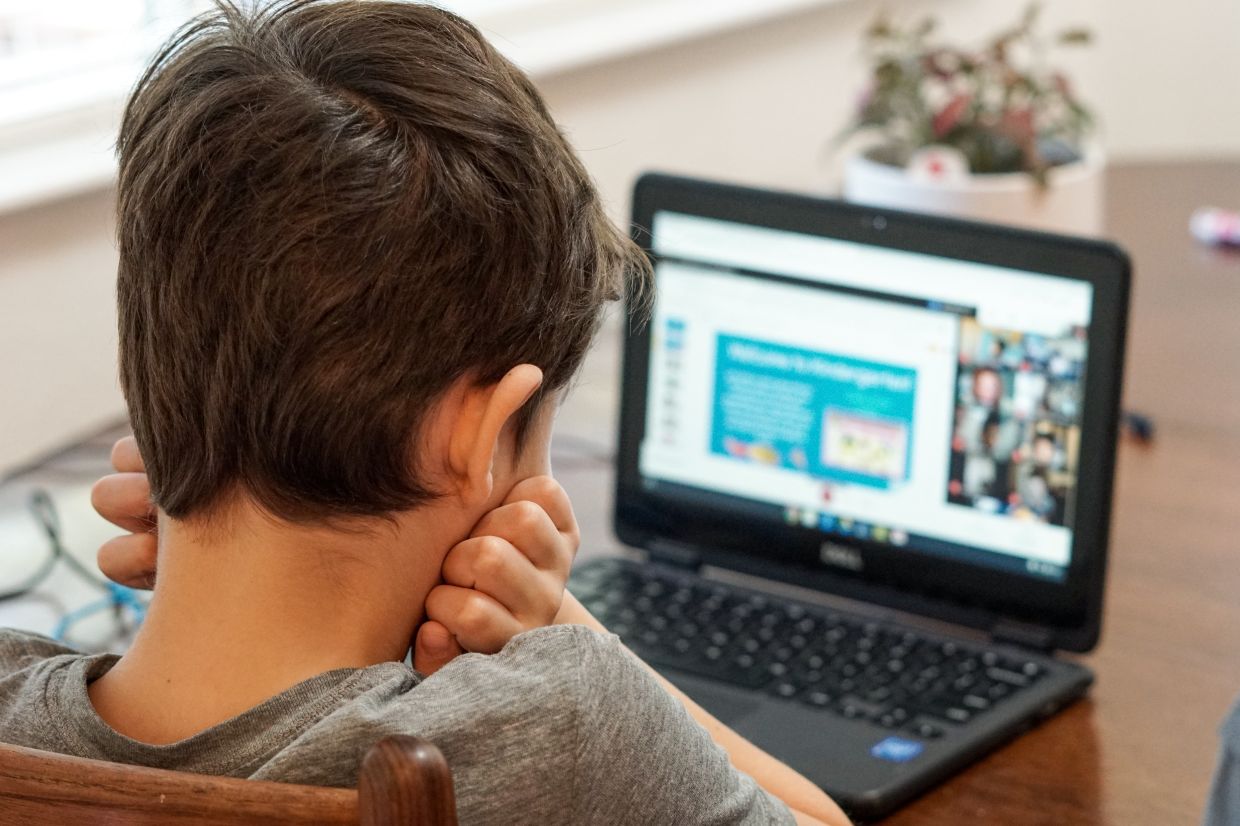What Are Effective Strategies for Managing Multi-Child Stress?
Managing stress with multiple children can be tough. Identify triggers like rivalry and lack of space. Set boundaries and communicate openly. Stick to routines for stability and use visual aids. Take time for self-care and assert boundaries. Give each child individual attention. Practice active listening and create a safe space for talks. Reach out for support and join a community. These strategies can help you navigate multi-child stress and build a harmonious home.
Key Takeaways
- Establish routines for stability and predictability.
- Prioritize self-care and set boundaries.
- Spend quality one-on-one time with each child.
- Foster open communication and active listening.
- Seek support from networks for resilience.
Identifying Triggers and Stressors

Identifying triggers and stressors is essential in understanding and addressing the sources of stress in managing multi-child stress effectively. By recognizing what specifically causes stress in your family dynamic, you can begin to implement strategies to mitigate these challenges. Common triggers may include sibling rivalry, lack of personal space, or difficulty in time management.
Once you identify these stressors, you can work on implementing coping mechanisms. Coping mechanisms can vary from family to family but may include setting boundaries, encouraging open communication, and fostering a supportive environment. Additionally, incorporating relaxation techniques such as deep breathing exercises or mindfulness practices can help both you and your children manage stress more effectively.
Mindfulness practices, like meditation or yoga, can promote a sense of calm and presence in the midst of chaos.
Establishing Routine and Structure
To effectively manage multi-child stress, establishing a routine and structure within your family dynamic can provide stability and predictability for both you and your children. Consistent schedules and structured routines help create a sense of security and organization, reducing chaos and uncertainty.
Start by setting regular mealtimes, bedtime routines, and designated times for homework or play. Consistency in these daily activities can help children feel secure and understand what to expect. A visual schedule or chart can be beneficial for younger children or those who thrive on visual cues.
Incorporating structured routines also includes clear expectations and boundaries. Communicate rules effectively and consistently enforce them to create a sense of order. Encourage teamwork and cooperation among siblings by involving them in creating and following the family routines.
Practicing Self-Care and Boundaries

Establishing boundaries and prioritizing self-care is vital for managing multi-child stress effectively.
As a caregiver juggling the needs of multiple children, it’s essential to remember that taking care of yourself isn’t a luxury but a necessity. Self-care practices can range from simple activities like taking a short walk alone, practicing deep breathing exercises, or setting aside time to pursue a hobby you enjoy. These practices help recharge your energy and mental well-being, enabling you to better handle the demands of caring for multiple children.
Setting boundaries is equally important. Clearly defining limits on your time, energy, and availability can help prevent burnout and feelings of overwhelm. Communicate these boundaries respectfully but firmly with your children, partner, and anyone else involved in caregiving. Remember, it’s okay to say no and prioritize your well-being.
Encouraging Individual One-on-One Time
To help alleviate stress and build stronger connections with each of your children, consider setting aside individual one-on-one time with each child.
Research shows that quality time spent individually with each child can have a significant positive impact on their emotional well-being and behavior.
Engaging in activities tailored to each child’s interests can foster a deeper bond and create lasting memories that strengthen your relationship.

Quality Time Importance
Make sure each of your children gets individual one-on-one time with you to cultivate a strong bond and nurture their unique interests and needs. Family bonding is vital for creating a supportive and loving environment, and quality interactions with each child play a significant role in achieving this. By dedicating exclusive time to each of your children, you show them that they’re valued and strengthen the parent-child relationship.
Research suggests that individual one-on-one time helps children feel seen, heard, and understood. This personal attention allows you to better understand their emotions, challenges, and achievements. It also provides an opportunity to engage in activities that cater to their specific interests and talents, boosting their self-esteem and overall well-being.
Practical tip: Schedule regular one-on-one outings or activities with each child, such as a walk in the park, baking together, or reading their favorite book. These moments create lasting memories and foster a deeper connection between you and your children.
Personal Attention Benefits
Prioritize regular one-on-one interactions with each of your children to provide them with the personalized attention that fosters emotional connection and strengthens family relationships. Parent-child bonding is essential for the emotional well-being of each child. By spending individual time with them, you show that you value and cherish their unique qualities, strengthening the bond between you.
This personal attention also helps in nurturing positive sibling relationships. When each child feels seen and heard, they’re less likely to feel jealous or resentful towards their siblings.
Research indicates that children who receive individualized attention from their parents tend to have higher self-esteem and better social skills. These one-on-one interactions create a safe space for open communication, allowing children to express their thoughts and feelings freely.
Strong parent-child bonds also have a positive ripple effect on sibling relationships, fostering a sense of unity and cooperation within the family. By carving out dedicated time for each child, you’re investing in their emotional well-being and laying the foundation for healthy family dynamics.
Bonding Through Activities
Engaging in activities tailored to each child’s interests can deepen your bond with them and create meaningful one-on-one time that strengthens your family relationships. By focusing on individual attention through creative projects or outdoor adventures, you can foster a sense of connection unique to each child.
Creative projects offer a fantastic way to bond with your children on a personal level. Whether it’s painting, crafting, or building something together, these activities can spark creativity and allow for open communication. Encourage your child’s imagination to run wild, creating a safe space for them to express themselves freely.
Outdoor adventures provide an excellent opportunity to connect with nature and each other. Whether it’s a hike, a bike ride, or a picnic in the park, spending time outdoors can reduce stress and improve overall well-being. These experiences create lasting memories and strengthen the bond between you and your child.
Implementing Effective Communication Strategies

Effective communication strategies play a fundamental role in managing multi-child stress, allowing parents to connect with each child individually and address their unique needs.
One key strategy is active listening. When engaging in conversations with your children, make sure to give them your full attention, listen attentively to their concerns, and reflect back what they’re saying to show understanding. This active listening approach helps children feel heard and valued, strengthening the parent-child bond and fostering trust.
Open dialogue is another essential component of effective communication. Encourage your children to express their thoughts and emotions openly without fear of judgment. By creating a safe space for open dialogue, you can better understand each child’s perspective and work together to find solutions to alleviate stressors.
Seeking Support and Community
To navigate the challenges of managing multi-child stress, consider seeking support and connecting with a supportive community to share experiences and resources.
Parenting groups and online resources can be valuable tools in helping you feel less isolated and overwhelmed. These groups provide a platform where you can engage with other parents facing similar struggles, exchange tips, and offer each other emotional support.
Additionally, attending community events geared towards families can help you build a local support network. These events create opportunities for you to meet other parents in person, form connections, and potentially establish long-lasting friendships.
Support networks are essential for maintaining your well-being and resilience as you juggle the demands of parenting multiple children.
Frequently Asked Questions
How Can I Balance Each Child’s Unique Needs?
Balancing each child’s needs requires individualized attention and effective time management. Prioritize parent-child bonding through quality time and emotional support. Understanding their unique personalities and interests will help create a harmonious environment where each child feels valued and supported.
What Are Some Creative Ways to Connect With Each Child Individually?
To connect individually with each child, plan parent-child dates for quality time. Engage in special activities based on their interests. This bonding time fosters a strong parent-child relationship and helps you understand and meet their unique needs.
Are There Specific Relaxation Techniques for Multi-Child Stress?
When managing multi-child stress, it is crucial to incorporate relaxation techniques like deep breathing, meditation, mindfulness, and yoga. These practices can help create a calmer environment, fostering peace and harmony among the children.
How Do I Handle Conflicts Between Siblings Effectively?
When handling conflicts between siblings, remember that conflict resolution is key. Address sibling rivalry by promoting active listening, encouraging compromise, and teaching problem-solving skills. Stay calm, remain neutral, and provide guidance when needed.
What Resources Are Available for Parents of Multiple Children?
When you’re raising multiple children, online forums and support groups provide connection and advice. Parenting workshops and counseling offer valuable tools to navigate challenges. Remember, seeking help isn’t a sign of weakness but a strength.
Conclusion
To sum up, managing stress with multiple children may seem overwhelming, but by identifying triggers, establishing routines, practicing self-care, encouraging one-on-one time, implementing effective communication, and seeking support, you can create a more peaceful and harmonious household.
Remember, you aren’t alone in this journey, and taking care of yourself is just as important as taking care of your children.
Stay strong, stay connected, and remember to prioritize your well-being.

Hey there! 👋 I’m a proud mom and passionate writer, sharing my parenting journey. 📝 Join me as I navigate the ups and downs of motherhood, offering tips, advice, and a sprinkle of humor along the way. 🌟







